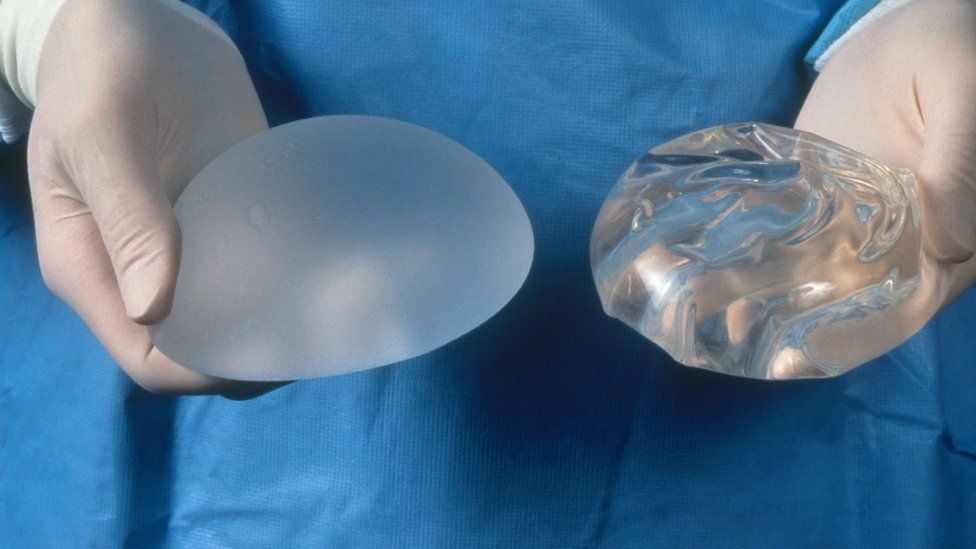Breast implant register launches 'to safeguard patients'
- Published

A register of patients in England with breast and other cosmetic implants has been set up to allow them to be traced in the event of any safety concerns.
The move comes after faulty Poly Implant Prothèse (PIP) silicone breast implants were recalled in 2010, affecting thousands of women.
The inclusion of individual patients' details will not be mandatory.
However, all providers of breast implant surgery will be expected to participate in the scheme.
Health Secretary Jeremy Hunt said: "We want the NHS to be the safest healthcare system in the world and anyone who chooses to have a cosmetic procedure has the right to safe care.
"The PIP breast implant scandal in 2010 affected thousands of people which is why we asked NHS Digital to develop a new register which will allow people to be traced swiftly if that is ever needed."
Jan Spivey of the PIP Action Campaign, welcomes the patients' register but wants it to be extended
As a result of poor record-keeping following the PIP scandal, many women were unable to find out if they had been given the faulty implants.
In some cases, because surgery providers had gone out of business, women who received the implants could not be traced.
NHS and private patients
The Breast and Cosmetic Implant Registry - which will be managed by NHS Digital - will include patients treated by both NHS and private providers.
And participation in the registry will be noted during Care Quality Commission (CQC) inspections.
The registry will be expanded in the future to also cover other cosmetic implants, such as buttock or calf implants.
It is expected to record more than 20,000 cases of implant surgery every year and allow complications with specific implants to be picked up.
Providers will be expected to submit data on patients via an online portal.
Explicit consent from patients will be required to add their details to the registry - and this is in addition to the usual consent for the surgical procedure.
Noel Gordon, chair of NHS Digital, said the registry marked a major step forward in improving patient safety for people who undergo breast implant surgery each year.
'Track and trace'
"We look forward to working with patients and providers to ensure that the benefits of this important registry are delivered."
The British Association of Plastic, Reconstructive and Aesthetic Surgeons, the Association of Breast Surgery and the British Association of Aesthetic Plastic Surgeons welcomed the registry.
In a joint statement, they said: "This will protect patients by providing a way to actively monitor all implants, track and trace their use and provide data for further research, which may be used to further technological advances.
"We hope that all patients will consent to the submission of data on their behalf."
- Published10 December 2013
- Published10 February 2011